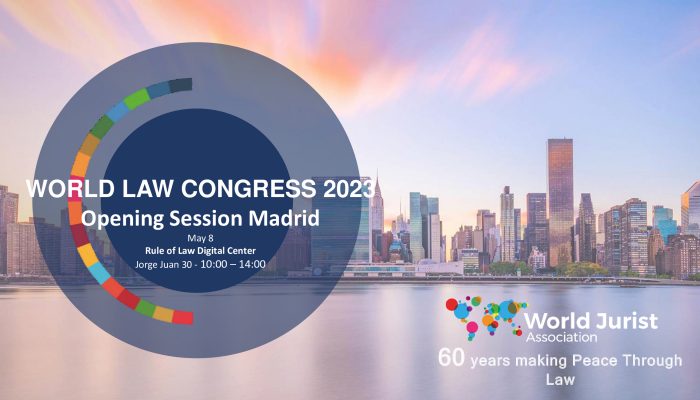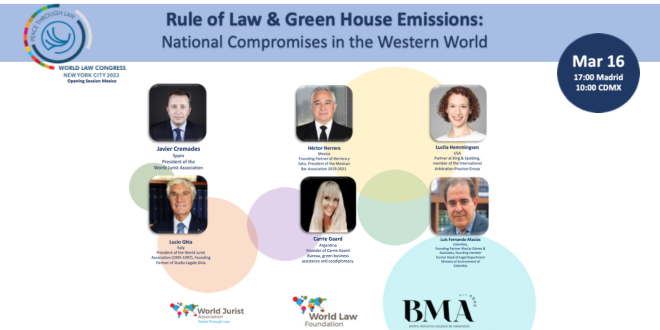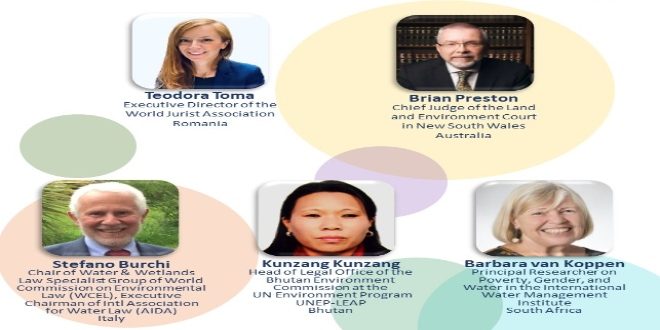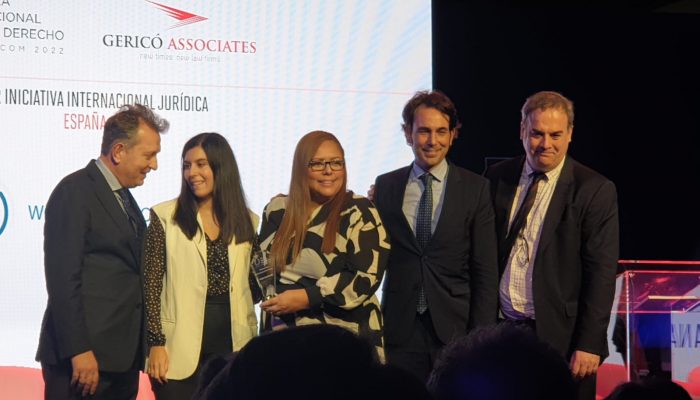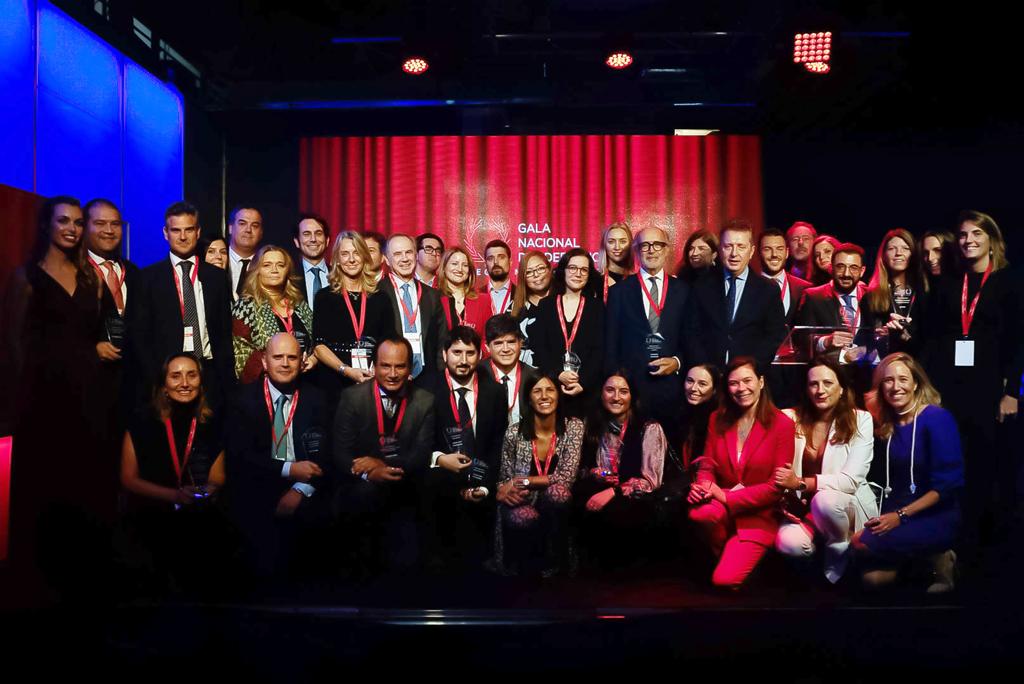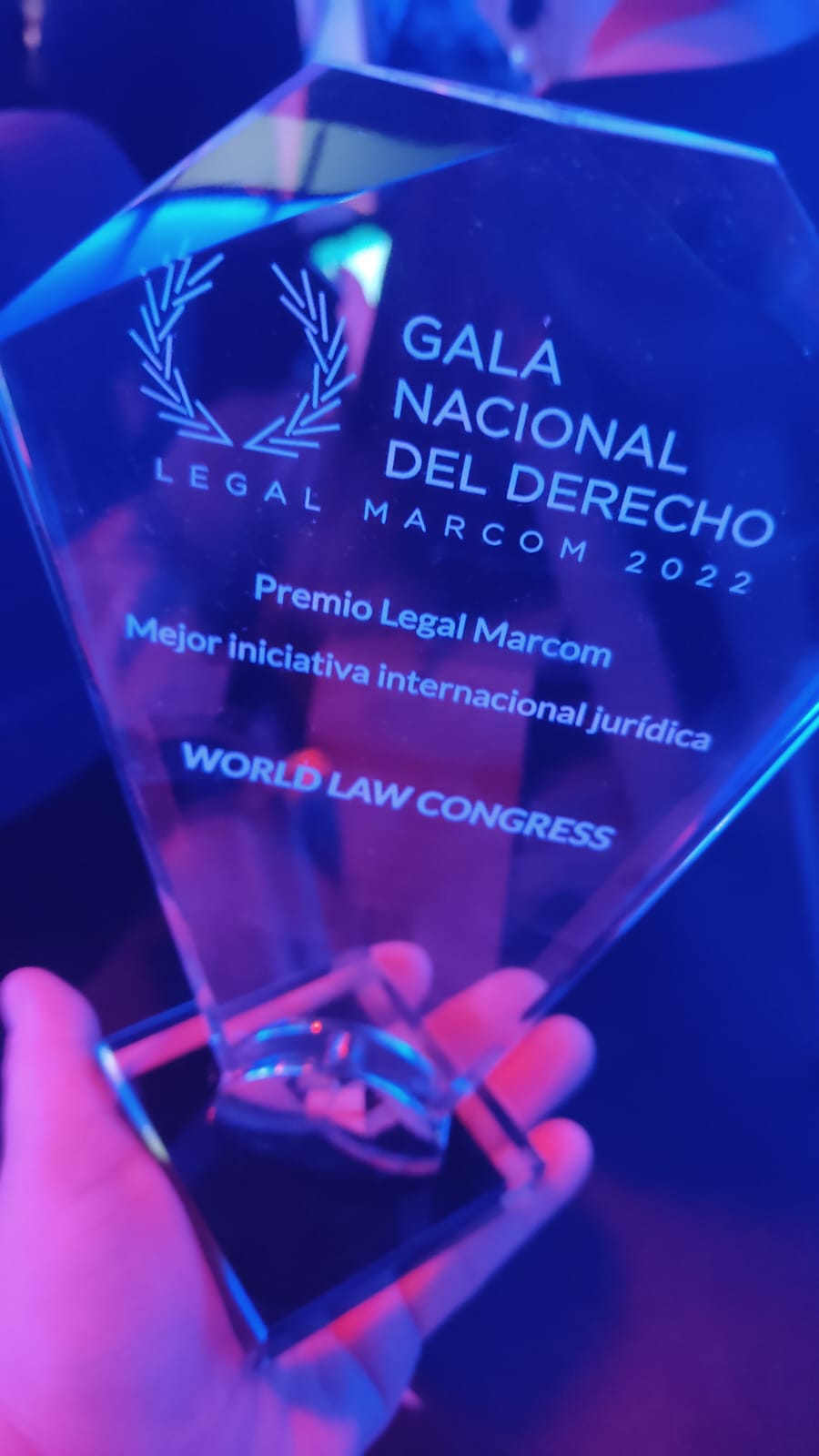Se trata del máximo galardón que entrega la World Jurist Association y reconoce el trabajo de Young por ser “líder de la lucha de los derechos civiles y parte de la historia contemporánea de Estados Unidos y del mundo en su lucha por los derechos humanos”.
Durante la jornada se han entregado también las Medallas de Honor Ruth Bader Ginsburg 2023 a Navi Pillay, Lady Brenda Hale, Ambiga Sreenevasan, Imrana Jalal y Asifa Kakar.
Su Majestad el Rey ha entregado el World Liberty & Peace Award a Andrew Young, destacado líder de los derechos civiles estadounidenses. El máximo galardón que concede la World Jurist Association (WJA) y que está considerado como el Premio Nobel del derecho. En palabras de S.M. el Rey, Andrew Young “ha contribuido a cambiar a mejor el curso de la historia de Estados Unidos y lo hizo con su propia experiencia y con el esfuerzo de toda una vida; el servicio a los demás ha definido su carrera siempre con un espíritu de humildad, pacifismo y serenidad”.
Al recoger su galardón, Andrew Young ha asegurado que “estoy dispuesto a seguir dándole duro, con su confianza y la fe en la justicia y esa voluntad de trabajar en favor del derecho”.
Por su parte, Javier Cremades, presidente de la World Jurist Association (WJA) ha señalado que “es un líder de la lucha de los derechos civiles y parte de la historia contemporánea de Estados Unidos y del mundo en su batalla por los derechos humanos”. En esta línea ha afirmado que este reconocimiento busca resaltar la labor internacional de Young en favor del “progreso social, político y económico de los oprimidos de todo el mundo”. Y ha añadido que “Young representa los valores de la World Jurist Association porque a lo largo de toda su carrera profesional ha sido un ejemplo para la humanidad por su defensa del Estado de Derecho”.
La laudatio ha corrido a cargo de Leonel Fernández, presidente de la República Dominicana entre los años 1996 y 2000 y entre 2004 y 2012, quien ha concluido subrayando que se trata de “una poderosa voz para la paz, un verdadero modelo para todos los que persiguen la prosperidad y el bienestar”. Y ha reconocido “su liderazgo y su incansable dedicación en favor de la dignidad humana, la justicia y la igualdad”.
Esta jornada, que se ha celebrado con motivo de la Opening Session Madrid como antesala al World Law Congress Nueva York 2023, ha tenido como protagonistas a las premiadas con las Medallas de Honor Ruth Bader Ginsburg que concede la World Jurist Association y que se han entregado por segunda vez. Se trata de un reconocimiento que han recibido Brenda Hale, presidenta del Tribunal Supremo de Reino Unido entre 2017 y 2020 y primera mujer en desempeñar este cargo, Ambiga Sreenevasan, abogada, activista malaya por elecciones libres, por los derechos de la mujer y defensora de los derechos humanos, Imrana Jalal, presidenta del Panel de Inspección del Banco Mundial, abogada especializada en derechos humanos y fundadora del movimiento por la equidad de género en su natal Fiyi, Asifa Kakar, jueza de la Corte Suprema de Afganistán y miembro de la Comisión redactora de la Constitución de Afganistán en 2003, en nombre de la Asociación de Juezas Afganas Refugiadas, y Navi Pillay, jueza de la Corte Penal Internacional entre 2003 y 2008, alta comisionada de las Naciones Unidas para los Derechos Humanos entre 2008 y 2014 y presidenta del Tribunal Penal Internacional para Ruanda. Pillay ha recogido este año en persona la medalla que le fue entregada en 2021 y que aceptó de forma virtual debido a las restricciones de viaje establecidas en ese momento.
El encargado de clausurar el acto junto a S.M. el Rey ha sido Didier Reynders, Comisario europeo de Justicia, quien ha destacado la importancia de “rendir un homenaje a mujeres excepcionales que han promovido el estado de derecho y la igualdad, que han demostrado una persistencia y una capacidad sin precedentes para favorecer la paz y la justicia”. Sobre el galardón concedido a Andrew Young, ha dicho que “es verdaderamente admirable que se reconozca la trayectoria y su lucha contra la opresión, que ha sido encomiable”.
World Law Congress New York 2023
Durante el día de hoy se ha presentado, además, la 28ª edición del World Law Congress (WLC) que se celebrará en Nueva York el 20 y 21 de julio y que coincide con el 60 aniversario de la Fundación.
Con motivo de este próximo evento, S.M el Rey ha señalado la importancia que tiene cada nueva edición del WLC puesto que “el aprendizaje mutuo y el intercambio de ideas y conceptos jurídicos son cruciales para construir un consenso jurídico mundial basado en la dignidad inherente a todas las personas y que, por tanto, la reconozca”. Para Su Majestad, el nombre de la próxima edición del congreso La Paz a través del derecho “se convierte en una llamada a abrazar el Derecho en un mundo cada vez más convulso; muchas partes del mundo están sufriendo una erosión en el funcionamiento y la adhesión a la democracia, lo que también debilita naturalmente el Estado de Derecho. Lo que está en juego es la preservación del mejor modelo que la civilización ha creado para garantizar la coexistencia pacífica: un Estado constitucional y democrático de Derecho”.
Rule of Law Digital Center Madrid
La Opening Session Madrid 2023 ha sido el escenario también para la inauguración del Rule of Law Digital Center Madrid, el primer centro para la promoción del Estado de Derecho que pone en marcha la World Law Foundation (WLF) y la World Jurist Association en colaboración con el bufete de abogados Cremades & Calvo-Sotelo. Nace con el objetivo de ser un escaparate, una ventana física y digital al mundo a través de la cual la WLF, la WJA y las comunidades jurídicas y empresariales internacionales puedan unir sus fuerzas y llevar a cabo acciones comunes para promover el Estado de Derecho y tener un impacto positivo en la sociedad.
Cremades ha reconocido que “el estado de derecho es el máximo bastión para defender a los ciudadanos y difundir este concepto es indispensable para mantener el imperio de la ley”. Al respecto, Su Majestad el Rey ha asegurado que “realmente representa un paso más de la comunidad jurídica internacional para avanzar, para adaptarse y adecuar sus capacidades a través de los medios digitales, con el fin de mantener el rumbo de la causa de la justicia, y navegar a través de estos tiempos de rápidos cambios”. Es por ello que “Madrid se convierte así en una de las grandes capitales mundiales del Derecho, y en un punto de encuentro abierto a la conversación y al diálogo”. Este nuevo espacio será el escenario de una campaña permanente en defensa de la paz y la libertad, con el Derecho como la herramienta más fundamental para conseguirlo”.
links en medios de comunicación online:
Andrew Young recibe el World Peace and Liberty Award (lawyerpress)
Santo Domingo será sede de la Conferencia Mundial de Derecho en 2025 (elperiodico.com.do)
Santo Domingo será la capital mundial del Derecho (acento.com.do)
Felipe VI entrega el Premio Mundial de la Paz y la Libertad a Andrew Young (epe.es)
Andrew Young, Premio Mundial de la Paz y la Libertad (Telemadrid)


